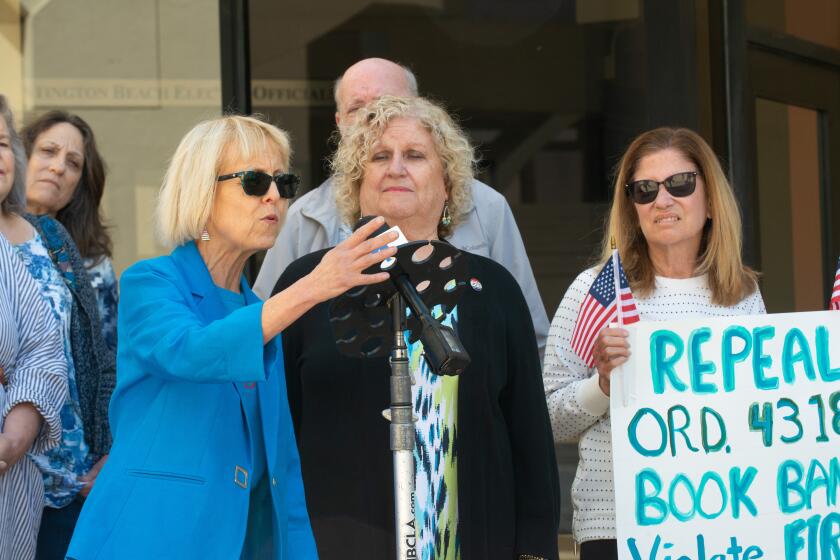Newport Beach sues to halt what city calls a marijuana dispensary at Church of the Holy Grail
Newport Beach officials are asking an Orange County Superior Court judge to block an operation that identifies itself as a church but the city says is a marijuana dispensary violating local law.
Brick-and-mortar marijuana dispensaries are prohibited in Newport Beach under municipal code. Cultivation, processing, distribution and delivery of cannabis have been banned in the city since 2016.
A civil lawsuit Newport filed June 25 seeks an injunction to forbid the organization known as Church of the Holy Grail from operating at 2072 Bristol St. It isn’t clear how long it has been operating, though the lawsuit states the location has been running without a business license since at least Jan. 24.
The city also is seeking a $25,000 civil penalty against the organization.
A hearing on the lawsuit has not been set, according to court records.
Cristian Peirano, Church of the Holy Grail’s attorney, wrote in a letter to the city in February that the location’s use of marijuana is “a lawful exercise of religion,” according to the lawsuit.
Peirano did not return a call seeking further comment Tuesday. A man who answered the phone at Church of the Holy Grail on Monday declined to comment.
Newport Beach police launched an investigation after the department received a tip in January that the property was a dispensary, according to the lawsuit.
In late January, city code enforcement sent the property owner, A&T Newport Beach Real Estate LLC, a notice ordering the “illegal activity” to stop, the lawsuit states.
According to the suit, authorities determined during undercover police operations in early February and early June that the property was still being used as a dispensary. The city has sent the organization four administrative citations in an effort to force it to close, according to the lawsuit. The citations state it is violating city law.
Church of the Holy Grail is listed on Weedmaps — an online marijuana forum where visitors can review cannabis strains and local dispensaries — as a dispensary selling marijuana herbs, extracts, edibles and topical products. The website indicates Church of the Holy Grail has been a “member” since May 2017. Customers on the site give it 4.9 out of a possible five stars.
The organization wrote on Weedmaps that its “ministry centers provide individualized faith counseling to members in conjunction with Q’Aneh-Bosm and its herbal components.”
“For many years, Q’Aneh-Bosm, our central sacrament, has been used in religious rituals and for healing,” it wrote.
City Attorney Aaron Harp said he’s confident the court will rule in the city’s favor, regardless of whether the operation claims to be a church.
“Even if they are a church that sells marijuana to members, that doesn’t exempt them from complying with the city’s laws,” Harp said.
This isn’t the first time this year that Newport Beach has taken enforcement action against a marijuana-related operation.
In May, the city filed a civil suit seeking an injunction to forbid OC Healing House, also known as Bud Man OC and Bud Man Newport Beach, from operating in homes on Drakes Bay Drive in Corona del Mar and Promontory Drive in Newport Beach.
The city attorney’s office has said the operation was using the homes for marijuana delivery and distribution.
The business owner agreed to stop operating in Newport Beach as part of a June 25 settlement agreement with the city’s attorneys, according to a signed document provided by the city attorney’s office.
Superior Court Judge David Chaffee will need to affirm the agreement before it takes effect. A date for that has not been scheduled, according to court records.
Twitter: @HannahFryTCN
UPDATES:
11:30 a.m. Aug. 16: This article originally included the specific addresses of two homes that city officials alleged were being used for marijuana delivery and distribution. The article has been updated to remove the house numbers for privacy reasons.
This article was originally published at 4:50 p.m. July 3.
All the latest on Orange County from Orange County.
Get our free TimesOC newsletter.
You may occasionally receive promotional content from the Daily Pilot.




